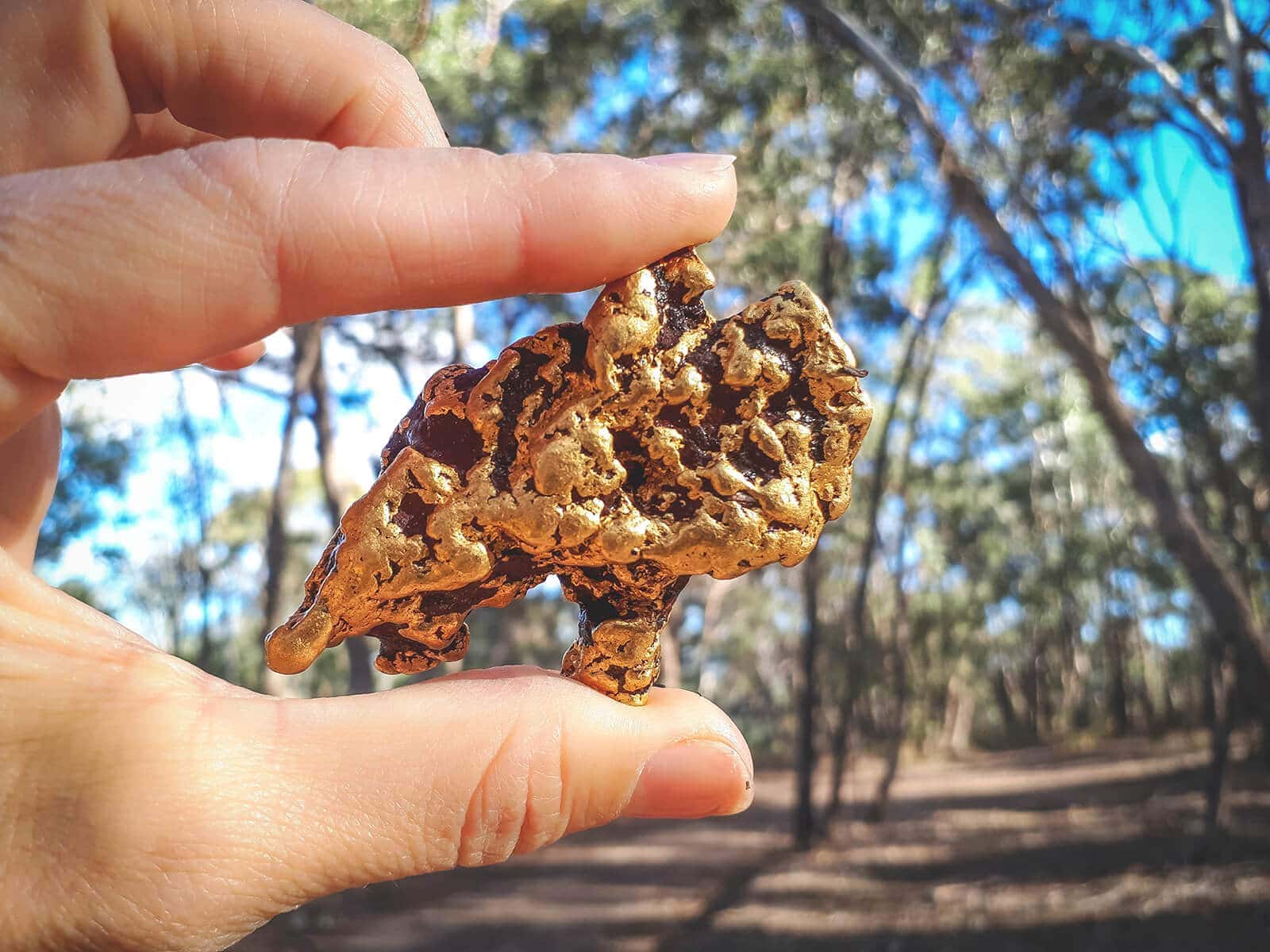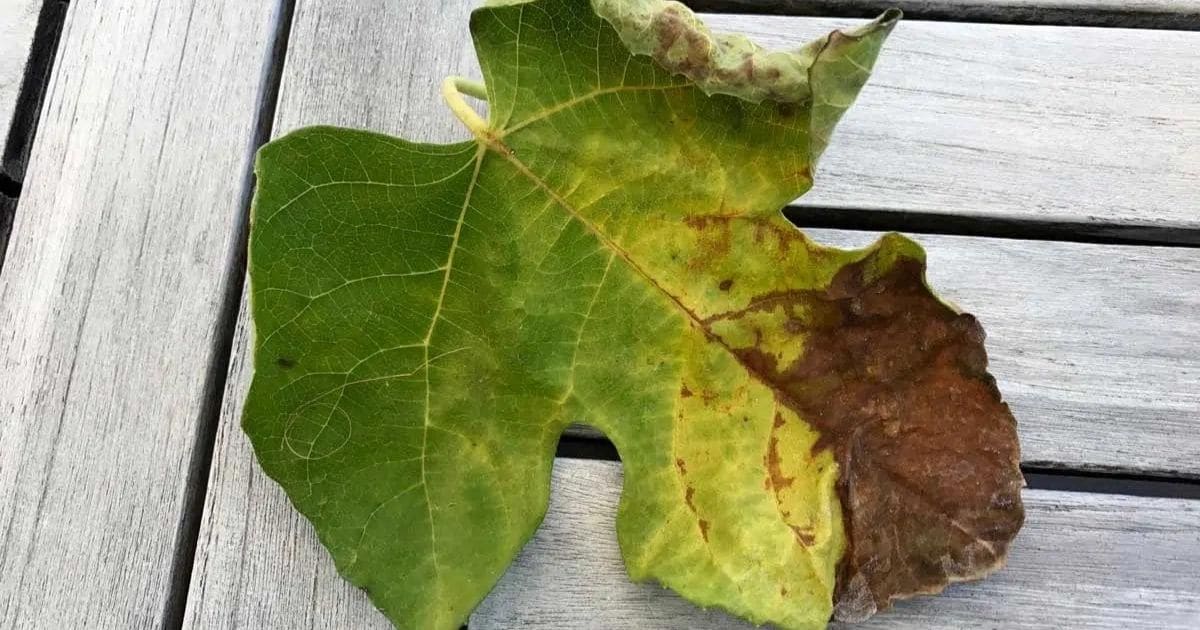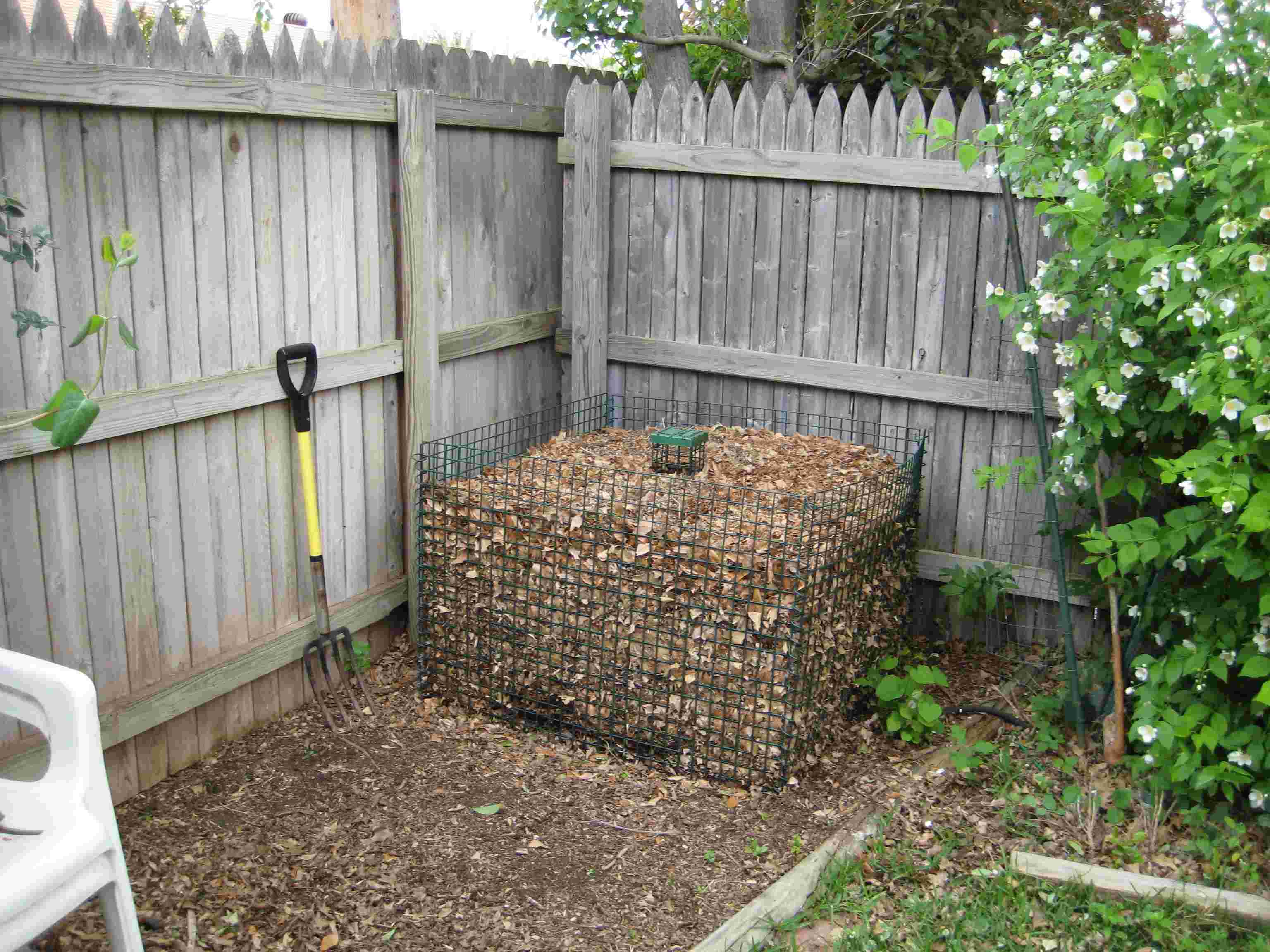Home>Gardening News and Trends>What Happens If You Find Gold In Your Backyard


Gardening News and Trends
What Happens If You Find Gold In Your Backyard
Modified: January 22, 2024
Discover the latest news on what happens if you find gold in your backyard. Uncover the exciting possibilities and potential outcomes of striking it rich on your own property!
(Many of the links in this article redirect to a specific reviewed product. Your purchase of these products through affiliate links helps to generate commission for Chicagolandgardening.com, at no extra cost. Learn more)
Table of Contents
Introduction
Imagine the excitement of digging in your backyard and stumbling upon a shiny golden nugget or an ancient gold coin. Discovering gold in your own backyard is a dream many people share, stirring up visions of wealth and luxury. But what happens if this dream becomes a reality? Are you instantly a millionaire? Are there any legal implications? And how does it affect your property value?
Before we delve into these questions, it’s important to understand the ownership of minerals, as it varies from country to country and even within different regions. In some cases, the discovery of gold on your property may not automatically grant you ownership rights.
In the United States, for example, the ownership of minerals often falls under the concept of “split estate,” meaning someone else may own the mineral rights while you own the surface rights to your property. This could result in a situation where you find gold, but you may not have the legal right to extract or sell it without the consent of the mineral rights owner.
Furthermore, the legal implications of finding gold on your property can vary depending on local regulations. It is crucial to research and consult with legal professionals to understand your rights and obligations.
Another important aspect to consider is the tax implications of discovering and profiting from gold. Any income generated from selling gold may be subject to taxes, including capital gains tax. It is advisable to consult a tax specialist to ensure compliance with the tax regulations in your jurisdiction.
In the next sections, we will explore these topics in more detail and uncover the potential outcomes and considerations when discovering gold in your backyard.
Understanding the Ownership of Minerals
When it comes to owning minerals, the laws and regulations can vary significantly depending on where you reside. In many countries, including the United States, the ownership of minerals can be separate from the ownership of the surface land. This concept is known as a “split estate.”
Under a split estate, it’s possible for someone else to own the mineral rights to your property, even if you own the land itself. This means that if you discover gold in your backyard, you may not automatically have the right to extract or sell it without obtaining permission from the mineral rights owner.
In some cases, mineral rights may have been separated from the land long ago through a process called “severance.” This often occurs when the land is sold, and the seller retains ownership of the mineral rights.
It’s important to research and understand the specific laws and regulations governing mineral rights in your region. This information can usually be obtained from your local government offices or by consulting with legal professionals who specialize in property and mineral rights.
If you find yourself in a situation where you don’t own the mineral rights to your property, you may be required to negotiate with the mineral rights owner to obtain permission for exploration or mining. This negotiation process can involve financial agreements or the signing of contracts that outline the rights and responsibilities of both parties involved.
It’s crucial to seek legal advice and understand the terms and conditions of any agreements before proceeding with any mining activities. Failure to do so can result in legal issues and potential financial liabilities.
It’s also worth noting that even if you do own the mineral rights to your property, there may still be restrictions or regulations in place that govern mining activities. These regulations are in place to protect the environment and ensure responsible extraction of minerals.
Understanding the intricacies of mineral ownership is key to navigating the legal complexities that may arise when finding gold in your backyard. By familiarizing yourself with the laws and regulations governing mineral rights in your area, you can take the necessary steps to ensure compliance and protect your interests.
Potential Legal Implications
Discovering gold in your backyard can have legal implications that you need to be aware of. These implications can vary depending on the jurisdiction you reside in and the specific regulations governing mineral rights and mining activities in your area.
The first important consideration is the ownership of the mineral rights. As mentioned earlier, the ownership of minerals can be separate from the ownership of the land, especially in countries with a split estate system. If you do not own the mineral rights to your property, you may need to obtain permission from the mineral rights owner to mine or sell any discovered gold.
Even if you do own the mineral rights, you may still need to comply with certain regulations and obtain permits or licenses before engaging in mining activities. These regulations are in place to protect the environment, ensure proper extraction methods, and prevent any unlawful or unauthorized mining.
It’s important to research and understand the specific requirements and regulations in your area. This may involve contacting local government agencies or consulting with legal experts who specialize in mining and mineral rights.
Additionally, mining activities can potentially have an impact on the surrounding community and environment. Depending on the scale and methods used, there may be specific environmental laws and regulations that you need to comply with.
Failure to abide by these regulations can result in legal consequences, including fines, penalties, or even cease and desist orders. It’s crucial to conduct mining activities in a responsible and environmentally conscious manner to avoid any legal disputes or liabilities.
Furthermore, it’s important to consider the potential impact on neighboring properties. Mining activities can cause disturbances, noise, and disruption. If your neighbors have concerns or if the mining activity is deemed to be a nuisance, you may face legal challenges or opposition from the community.
Lastly, it’s worth noting that the legal framework surrounding mineral rights and mining activities can be complex and subject to change. Staying informed and updated on any new regulations or legal developments is essential to ensure compliance and avoid any legal pitfalls.
By understanding and navigating the legal implications associated with discovering gold in your backyard, you can protect your rights, mitigate risks, and engage in mining activities responsibly and within the boundaries of the law.
Taxes and Income from Gold
Discovering gold in your backyard can be an exciting prospect, not only because of the potential value of the gold itself but also because of the income it can generate. However, it’s important to understand that any income generated from selling gold is subject to taxes.
The specific tax implications of selling gold can vary depending on your jurisdiction and the applicable tax laws. In many countries, including the United States, the income from selling gold is considered taxable income and may be subject to capital gains tax.
Capital gains tax is usually calculated based on the difference between the purchase price and the selling price of the gold. The exact tax rate and any exemptions or deductions available may vary, so it’s crucial to consult with a tax specialist who can provide tailored advice based on your specific circumstances.
In some cases, there may be certain thresholds or exemptions that apply to small-scale or hobbyist gold mining activities. These exemptions could provide some relief from the tax burden, but it’s essential to familiarize yourself with the relevant regulations and requirements.
When it comes to reporting your income from selling gold, it’s important to keep accurate records of all transactions, including the purchase price, selling price, and any associated expenses. These records will be vital when it comes time to file your taxes.
If you are engaging in gold mining as a business or as a significant source of income, additional tax obligations may apply. This could include registering your mining activities as a business, obtaining the necessary permits and licenses, and meeting any reporting requirements specific to the mining industry.
It’s important to note that tax laws can be complex, and they may change over time. Staying informed about any updates or changes to the tax regulations governing gold mining and sales is crucial to ensure compliance and avoid any potential penalties or legal issues.
Consulting with a tax professional who specializes in mining and precious metals can provide you with the guidance and knowledge necessary to navigate the tax landscape effectively. They can help you optimally structure your mining activities and ensure that you are meeting all your tax obligations while maximizing any available exemptions or deductions.
Understanding the tax implications and properly managing your income from selling gold will not only ensure compliance with the law but also help you make informed financial decisions and maximize the benefits of your newfound discoveries.
Determining the Value of the Discovered Gold
After discovering gold in your backyard, one of the first questions that may come to mind is: how much is it worth? The value of the discovered gold can vary depending on several factors, including its purity, weight, current market prices, and any unique characteristics that may make it valuable to collectors or investors.
To determine the value of your discovered gold, it’s essential to consider the following factors:
- Purity: The purity of gold is measured in karats. Pure gold is 24 karats, but most gold found in jewelry or coins is alloyed with other metals, such as silver or copper, to increase its strength. The higher the karat value, the higher the purity, and the greater the value.
- Weight: The weight of the gold is typically measured in troy ounces. One troy ounce is equal to 31.1 grams. The weight of the gold will significantly impact its value, as gold is generally priced per troy ounce.
- Current Market Prices: Gold prices fluctuate daily based on supply and demand factors. It’s important to stay updated on the current market prices to get an accurate estimation of your gold’s value.
- Collectible or Unique Characteristics: In some cases, gold may have additional value due to its historical significance, rarity, or unique features. This is particularly true for gold coins or gold nuggets that may appeal to collectors or investors beyond their intrinsic value.
Once you have determined the purity and weight of your gold, you can use online resources or consult with reputable gold buyers or appraisers to estimate its value. It’s important to seek multiple opinions to ensure a fair valuation.
Keep in mind that the estimated value is not the same as the sale price. The sale price may be lower due to factors like transaction costs, dealer margins, or any adjustments based on the unique characteristics of the gold.
If you have a significant quantity of gold, it’s advisable to consider professional appraisals or seek assistance from a reputable gold dealer. They can provide a more accurate valuation and help guide you through the process of selling your gold if you choose to do so.
Remember, the value of gold can be volatile, and prices can change rapidly. It’s important to assess the market conditions and make informed decisions based on your personal circumstances and goals.
By understanding the factors that determine the value of discovered gold and seeking professional guidance, you can make informed decisions regarding the potential sale or preservation of your newfound treasure.
Selling the Gold
Once you have determined the value of your discovered gold, you may consider selling it to capitalize on its worth. Selling gold can be done through various avenues, each with its own set of considerations and potential outcomes.
One option is to sell your gold directly to a reputable gold buyer or dealer. These professionals specialize in assessing and purchasing gold from individuals. It’s important to research and choose a trusted and reputable buyer to ensure a fair transaction.
When selling your gold, be prepared to provide documentation related to its authenticity and origin. This includes any certifications, receipts, or other relevant information that establishes the legitimacy and value of the gold.
Another option is to sell your gold through online platforms or auction websites. These platforms allow you to reach a larger audience and potentially attract higher offers. However, it’s essential to carefully consider the fees, commissions, and potential risks associated with online transactions.
If your discovered gold has unique or collectible characteristics, you may also explore selling it to collectors or investors who specialize in rare or valuable gold pieces. In this case, working with a specialized gold expert or engaging in auctions specifically targeting collectors may yield the best results.
Prior to finalizing any sale, it is advisable to obtain multiple offers and compare them to ensure that you are maximizing the value of your gold. This may involve contacting different buyers, seeking appraisals from multiple sources, or researching similar gold items that have been sold in the past to assess their market value.
When selling gold, you should consider the transaction costs involved, such as any fees or commissions charged by the buyer or the platform you choose. These costs can impact the net profit you receive from the sale.
It’s also important to be cautious and avoid potential scams or fraudulent activities when selling gold. Research the reputation and credibility of any individual or organization you plan to engage with and be wary of unsolicited offers or questionable practices.
Lastly, consider your own personal circumstances and financial goals when deciding whether to sell your discovered gold. If you believe that the value of gold may increase in the future, you may choose to hold onto it as an investment. Alternatively, if you need immediate funds or no longer have a use for the gold, selling it may be the most practical option.
By carefully considering your selling options, conducting due diligence, and seeking professional guidance when necessary, you can make an informed decision that aligns with your goals and ensures a fair outcome when selling your discovered gold.
Impact on Property Value
The discovery of gold in your backyard can have a significant impact on the value of your property. However, it’s important to note that the extent of this impact can vary depending on various factors, including the size of the gold deposit, the ease of extraction, and the overall market conditions.
In some cases, the presence of gold on your property can increase its value, especially if the deposit is substantial and easily accessible. This can be particularly true in areas where gold mining is common and there is a strong demand for gold-rich properties. Potential buyers may see the discovery as a unique opportunity to invest in a property with inherent wealth-generating potential.
On the other hand, the impact on property value may be limited if the gold deposit is relatively small or difficult to extract. In such cases, the perceived value of the gold may not outweigh the costs associated with extraction and potential legal obligations. Buyers may view the discovery as more of a novelty or a minor factor in their decision-making process.
It’s worth noting that the impact on property value can also depend on local market conditions and trends. For instance, in areas where real estate prices are already high and there is significant competition for properties, the discovery of gold may create additional buzz and attract more potential buyers, potentially driving up the property value.
Alternatively, in areas where economic conditions are already struggling or where the demand for properties is low, the impact on property value may be limited. Buyers may prioritize other factors when considering a property purchase and may not attach significant value to the discovery of gold.
Another important factor to consider is the potential negative impacts that gold mining or extraction activities can have on the property. Depending on the scale and methods used, mining activities can result in environmental disturbances, noise pollution, and visual changes to the landscape. These factors can have a negative impact on the desirability and value of the property for some buyers.
Additionally, there may be local zoning regulations or restrictions that limit or prohibit mining activities. These regulations can also impact the overall value of the property, as buyers may be deterred by the limitations or potential legal implications.
Ultimately, the impact on property value from the discovery of gold in your backyard is highly dependent on various factors specific to your location and market conditions. It’s advisable to consult with real estate professionals or appraisers who have expertise in your area to better understand the potential impact on the value of your property.
By considering these factors and obtaining professional advice, you can make informed decisions regarding the potential sale, development, or preservation of your property based on its adjusted value following the discovery of gold.
Environmental Considerations
When discovering gold in your backyard, it’s important to consider the potential environmental impacts associated with mining or extraction activities. Gold mining, especially on a larger scale, can have significant environmental consequences that need to be taken into account.
One of the primary concerns is habitat destruction and ecosystem disruption. The excavation and extraction processes involved in gold mining can result in the removal of vegetation, topsoil, and sedimentation in nearby water bodies. This can lead to the displacement or loss of plant and animal species, as well as the degradation of aquatic ecosystems.
Additionally, the use of chemical substances such as cyanide and mercury, which are commonly employed in gold extraction processes, can have detrimental effects on water quality and human health. Accidental spills or improper waste disposal can lead to contamination of surrounding water sources, impacting not only the local ecosystem but also the communities that rely on these water sources for their livelihoods.
Air pollution is another environmental concern associated with gold mining. Dust and particulate matter can be generated during mining operations, contributing to respiratory problems and negatively affecting local air quality. Furthermore, the use of heavy machinery and vehicles can emit greenhouse gases and contribute to climate change.
Regulations and guidelines are often in place to mitigate these environmental impacts and ensure responsible mining practices. It is important to familiarize yourself with these regulations and comply with any environmental permits and requirements before engaging in mining activities.
Furthermore, engaging in environmentally conscious mining practices can help minimize the negative impacts. This includes techniques such as proper waste management and sediment control, using less harmful extraction methods, and implementing reclamation and restoration plans to rehabilitate the land after mining activities have ceased.
Before proceeding with any mining activities, it’s advisable to conduct environmental assessments and consult with experts in environmental management or sustainability. These professionals can help you understand the potential impacts of mining on the environment and guide you in implementing best practices to minimize these impacts.
In some cases, you may also need to obtain environmental permits or conduct environmental impact assessments to ensure compliance with local regulations. Failure to do so can result in legal consequences and damage to the environment.
By considering the environmental implications and taking proactive measures to minimize environmental harm, you can engage in mining activities responsibly and mitigate the impact on the ecosystem and surrounding communities.
Conclusion
Discovering gold in your backyard is an exciting and potentially lucrative endeavor. However, it is crucial to approach the process with careful consideration and understanding of the various factors involved.
From understanding the ownership of minerals and potential legal implications to navigating the tax obligations and determining the value of the discovered gold, there are many aspects to take into account. It is essential to conduct thorough research, seek professional advice, and comply with relevant laws and regulations.
Moreover, the impact on property value and the environmental considerations associated with mining activities must be carefully evaluated. These factors can affect the decisions you make regarding the sale, development, or preservation of your property.
By being informed and seeking guidance from experts in relevant fields such as mining, property, tax, and the environment, you can make informed decisions and ensure a smoother and more successful experience when dealing with the discovery of gold in your backyard.
Remember, the process of finding, extracting, and selling gold can be complex and multifaceted. It is always advisable to consult professionals who specialize in the relevant areas to help guide you through the process and ensure compliance with legal and environmental requirements.
With the right knowledge, careful planning, and responsible actions, you can potentially make the most of your newfound treasure while minimizing any potential risks or negative impacts.










